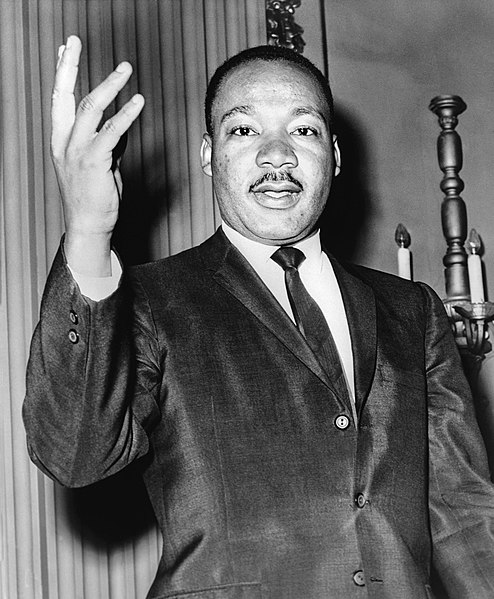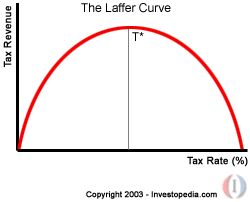the American Electorate is inattentive and apathetic
The average American voter can not tell you the name of their Congressman. They cannot tell you the name of more than one of their Senators. They cannot tell you what bills Congress has passed, nor what bills Congress is working on. And if they have any inkling of the legislative process, it's because they watched Schoolhouse Rock when they were a kid.
However, each of the failings I list above only involve one kind of memory. That guy who sells the awesome pastries in front of Stamoolis may not be able to RECALL the name of his congressman, but he can probably RECOGNIZE it, from a list. You know, like a ballot.
Congressman spend inordinate time and effort getting their name in front of their public. They send you mail detailing their legislative achievements and stick the Postal Service with the cost. The mention of a politician's name in the local paper will inspire a round of high fives in their DC office and each of their constituent offices. A mention on the evening news will provoke a round(s) of drinks, especially if a lobbyist can be found to pick up the tab. Members of Congress attend Town Halls, and send congratulatory emails, and walk in parades in an indefatigable effort to pound their name through a dense wall of public indifference, year after year after year...
| This and unlabeled images from Wikimedia Commons |
Incumbent success rates rise sharply after their first reelection, and more gradually with each successive election. This reflects the progressive effect of candidate self-promotion, term after term, on a disinterested constituency.
I should note here that there are other theories which purport to explain the incumbency effect. And they publish in more prestigious venues than blogspot.
People look at the incumbency effect and think it's a problem. If a Congressman has no statistical risk of losing an election, why would they bother to listen to their constituents? How will new ideas ever get a fair hearing in chambers dominated by aging, electorally invincible old men, committed to the status quo? Congressional approval is at historically low levels, but we can't seem to fire the buffoons we hold in such contempt.
To solve this problem, some people advocate Term Limits. Term Limits would limit members of Congress to a certain number of terms in office, after which they would be prohibited from running again. This would end the incumbency effect by law.
Term Limits were a popular idea in the 90's. I get the impression (perhaps unfair) that Term Limits advocates don't realize that. A number of state legislatures imposed term limits on their state's DC delegation. These were struck down as unconstitutional; Article I makes each chamber the sole judge of the qualifications of its members. A Constitutional Amendment was started in the House, but it went nowhere. A number of candidates ran for Congress on a promise to term limit themselves...
and most of them promptly reneged on that pledge, once they were in office.
But it's just as well. In a decade full of bad ideas, Term Limits stand out as particularly dysfunctional.
 |
| Image of Beatles tribute band Oasis from Wikimedia Commons. |
This has serious implications for democratic governance. Sure, everyone hates Congress, but they keep electing THEIR Congressmen and Senators, at a 90% clip. Term Limits are about telling voters, "You can't have that guy you want, because I think he's been there too long."
There are also reasons to oppose Term Limits that are less theoretical. The single biggest problem faced by our political system is the domination of the mechanisms of government by monied interests. Our regulators are people desperately hoping to end their careers working for the very sectors they regulate. The quality of legal representation available to litigants is a function of that litigant's wealth. And our elected representatives...
are bombarded, every second of the day and night, by lobbyists who want highly technical, obscure, enormously lucrative tweaks to legislation.
The situation is and has always been almost completely outside the public's awareness. This is both because of public inattention and the highly complex nature of the issues involved. Will the economy grow by 3.5 % next year, or 3.2%? Should the Post Office over fund their pension plan? Which proposed depreciation rate will maximize purchases of corporate durable goods in the short term?
The lobbyists are very happy to provide answers to all of these questions, and they hand out free booze every night at parties they throw 7 nights a week. These answers, offered so helpfully and enjoyably, MUST BE CRITICALLY EVALUATED. Someone new to the issues isn't in a position to do that. They don't know the right questions to ask. They haven't learned the nuances of the issues. They lack expertise.
Over the years, as they watch legislation being written, hear testimony in committee, get staff briefings and yes, deal with the unending parade of lobbyists, Congressmen become experts in their fields. They are more savvy, and harder to influence. They figure out who is a bullshit artist, and who is sincerely advocating a position.
 |
| Tax Policy expert and former Congressman Dan Rostenkowski. I think he's out of jail, now. |
Imposing a Term Limit on an elected representative who continues to enjoy the trust of his constituents deprives those constituents, and the country as a whole, of that person's hard-won expertise. Term Limits guarantee that legislators will be even more dependent upon lobbyists for information and expertise than they already are. Term Limits make the prospect of a long legislative career impossible, and make public service little more than a job interview for the special interest groups. Term Limits take the country farther in the direction of replacing constituent interest with the interests of those who can afford a lobbyist.
Term limits are a terrible idea.


































